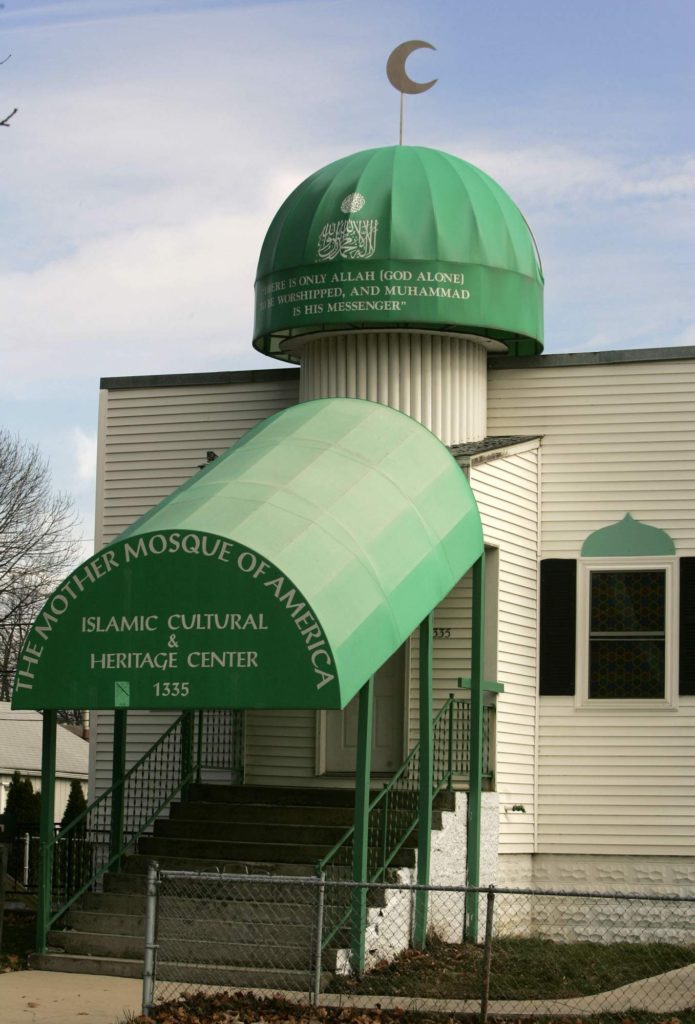Breaking through the noise of the 24-hour news cycle, where participants are more likely to yell than offer thoughtful discussion, isn’t easy. But a dozen local churches, religious organizations and academics still are going to try.
The stakes surrounding Islamophobia, they say, are too high – even in the city that is home to the Mother Mosque of America – to leave it to the talking heads.
“I recently read a novel by Louis de Bernieres, ‘Birds Without Wings,’” said Charles Crawley, president of the Inter-Religious Council of Linn County. The book, set in Turkey in the early 20th century, documents how international events tore apart Christians and Muslims who lived together peaceably for centuries.
“If we aren’t proactive, the same thing could happen here, with national and international events used to separate people on a local level,” he said. “So we want people to know there are forces actively promoting Islamophobia.”
The Inter-Religious Council is working with Coe College, the Catherine McAuley Center, Temple Judah, Mount Mercy University, Cornell College, the Mother Mosque and others to sponsor an evening with Todd Green, associate professor of religion at Luther College and author. Green, a former Franklin Fellow at the U.S. State Department, is a nationally recognized expert on Islamophobia, having provided lectures on the topic to federal agencies including the FBI and the Department of Homeland Security.
The event, open to the public, is scheduled for 7 p.m. April 2 at Kesler Auditorium on the Coe College campus.
“Journalists and politicians have frequently called upon Muslims to condemn terrorism carried out in the name of Islam,” Crawley said. ‘Dr. Green will discuss why this question is so problematic.”
Green’s two books on Islamophobia – “The Fear of Islam: An Introduction to Islamophobia in the West” and ‘Presumed Guilty: Why We Shouldn’t Ask Muslims to Condemn Terrorism” – have been cited in amicus briefs before the Supreme Court and propose alternative ways to engage each other in pursuit of counterterrorism.
In advance of the event, I asked Green if he thought his speech was necessary in Cedar Rapids, given the city’s rich Muslim history.

“Islamophobia is problem that exists from coast to coast, in small towns and large cities, in communities with a long-standing Muslim presence and in communities in which Muslims are fairly new,” Green said.
This moment in our nation’s political and cultural history, he added, has seen the growth of Islamophobia to epidemic proportions – the issue is getting worse, not better.
“In this regard, Cedar Rapids is not much different from the rest of the nation in that it has not been shielded from the anti-Muslim bigotry and racism that other regions and communities have been experiencing,” he said.
“At the same time, the fact that Cedar Rapids is home to the Mother Mosque makes the city a promising venue for conversations about Islamophobia,” Green said. ‘From the history of Islam in Cedar Rapids, we are reminded that Islam is not a foreign religion, nor is it at odds with American values or a threat to American identity.”
Islam, he insists, is one facet of America’s cultural and religious landscape.
“It’s had a home in this community, right here in the Heartland of America, for generations. Muslims helped create the Cedar Rapids that we know today. That’s a powerful message in this age of Islamophobia and anti-Muslim fearmongering,” he said.
Green’s latest book provides multiple layers of context around Islamophobia, showing readers how nearly all aspects of American life – politicians, media personalities and more – have come to equate terrorism with Islam, and how and why such connections are overblown and largely unfounded.
Changing the narrative to something that better resembles reality will not only take time, but it also is a battle that must be fought on multiple fronts.
Because personal relationships can inoculate against bigotry, Green advocates for more opportunities for people of differing backgrounds to engage each other.
“Personal relationships have the greatest potential to move the needle against prejudice, and we need to invest more energy and effort at the grass roots level in fostering an environment in which such relationships can materialize and deepen,” he said.
Although Muslims are not a race, they are often treated as if they were – “as a monolithic entity and suspect population deserving of discrimination,” Green said. Government watchdogs must be on alert for discriminatory policies that presume guilt. Many of these – mosque surveillance, anti-sharia legislation, unwarranted detention – came in the wake of the 9/11 attacks and are well-documented in the books.
Media consumers also must be willing to respond to false connections and discriminatory rhetoric.
“As we speak out against Islamophobia, and as we build relationships across religious boundaries, we must never lose sight of the larger goal – to create a movement that will dismantle the systemic discrimination faced by Muslim Americans,” Green said.
While there may be any number of American cities where such a message could be heard and nurtured, it should ring the loudest in Cedar Rapids.
This column by Lynda Waddington originally published in The Gazette on March 10, 2019.
Photo credit: Cliff Jette/The Gazette
